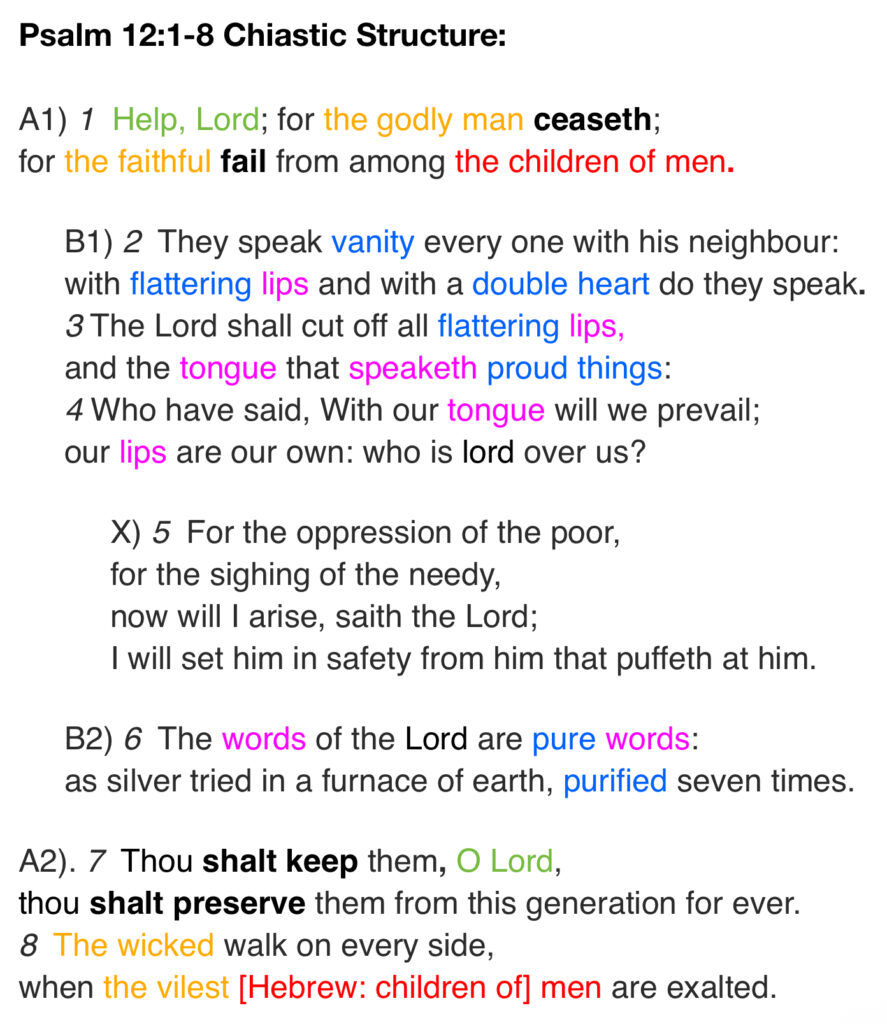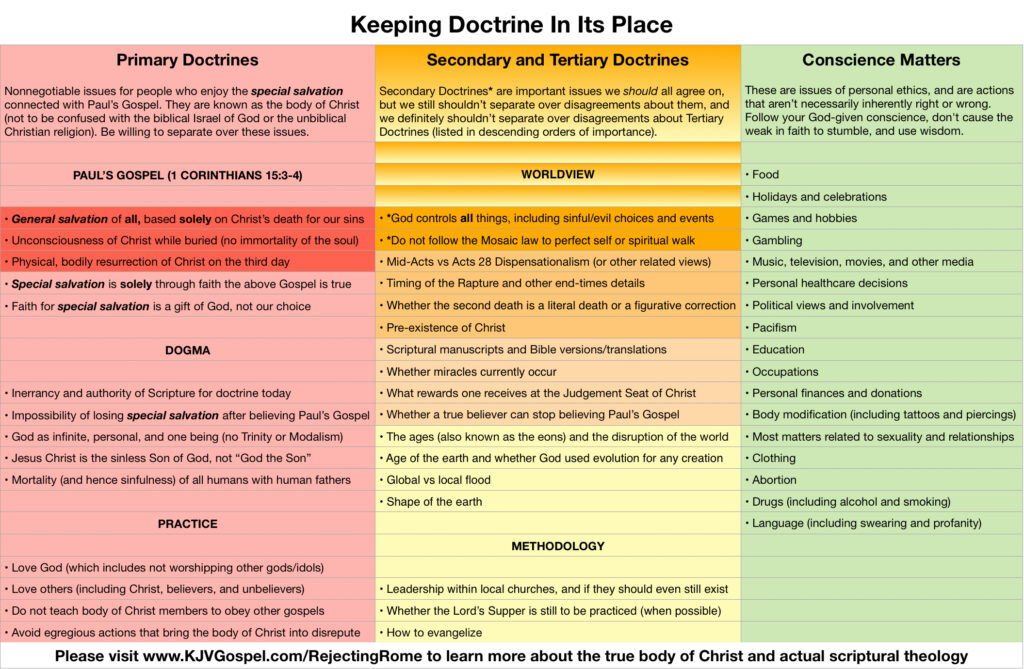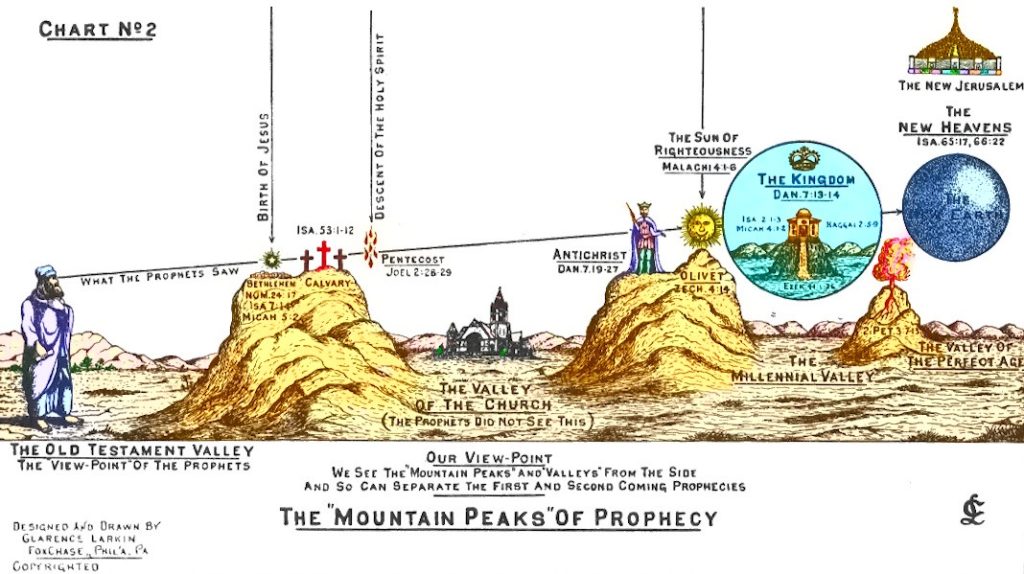The idea that Paul was a false teacher trying to deceive people into following a new religion he created is one of the most ridiculous ideas ever proposed, yet there are actually a lot of people out there who make this accusation. Most people who make this claim accept that Paul was a Jewish Pharisee who was entirely opposed to the teachings of Jesus that Peter, James, John, and the other early followers of Jesus believed and proclaimed. Where they go astray is in their assumption that he decided to create a competing faction (really an entirely new religion) in order to get people to stop believing and following Jesus’ teachings and follow these false teachings instead.
You see, since what he taught the nations after his conversion (or feigned conversion, if these people are right) went entirely against the Jewish doctrines he himself believed prior to this happening, and since he also didn’t believe that what Peter and the others taught was true (at least prior to his conversion, not to mention afterwards, if he faked his conversion), this would have been entirely counterintuitive of him because he’d just be getting people to reject one false religion (at least as far as he was concerned, if this theory was true) in order to follow an entirely different religion he also believed was false instead, which wouldn’t accomplish anything. But on top of that, he’d also be leading all the Jews who followed the Jewish religion he believed to be the actual truth (presuming, again, that this theory was true) astray, at least those Jews who converted to his supposedly new religion (and if the Bible is to be believed, he did convert some), which he also wouldn’t want. So bottom line, he wouldn’t have accomplished anything he actually wanted to accomplish (either purposely leading the early believers in Jesus astray, since he already believed they were wrong, or keeping existing followers of Judaism from going astray), so this idea is entirely nonsensical and deserves nothing but laughter.
This idea also raises problems for those who believe the Bible is the word of God yet who also call Paul a false teacher, because the only way to do so is based on the authority of other parts of the Bible, which requires first accepting that at least some parts of the Bible are indeed true. But if you’re going to remove his epistles and the writings about him in other books of the Bible as false doctrine (which you have to do if he is a false teacher), you end up with a much shorter Bible than you might realize at first (and, of course, this also brings up the question of why you’d accept certain parts of the Bible but not others).
For example, if you truly believe that Paul is a false teacher, on top of his own epistles, you have to cut the book of Acts out of the Bible. And if the writer of Acts (who clearly saw Paul as a legitimate apostle, based on what’s written in the book of Acts, and who very likely worked with Paul during his ministry) can’t be trusted, then the book of Luke can’t be trusted either and must also be removed, since it was written by the same person.
Of course, Peter also obviously considered Paul to be a brother in Christ, and even considered Paul’s epistles to be Scripture, based on what he wrote in 2 Peter 3:15-16, so you now have to cut 1 Peter and 2 Peter from the Bible too, as well as anything to do with Peter in Matthew, Mark, and John, if you’re going to go down this path, because Peter obviously can’t be trusted, which means he must be a false teacher too and hence can’t be a true apostle either. But not only that, this means that the writers of Matthew, Mark, and John were wrong in considering Peter to be an apostle of Jesus, which means the writers of these books also can’t be trusted, and so these three books also need to be tossed.
So at the end of the day, all you have left of the Greek Scriptures (meaning the books of the Bible that are generally referred to as “the New Testament”) are James, 1 John, 2 John, 3 John, Jude, and Revelation (and maybe Hebrews, presuming Paul didn’t write that as well, which some people believe he did), at least if Paul is indeed a false teacher (not to mention, if the writer of the book of John was also the writer of 1 John, 2 John, 3 John, and Revelation, as many believe he was, then those books have to go too, leaving you with only James and Jude). And at that point, I’m not sure what basis you’d have for believing any of what’s left of the Greek Scriptures, although if you’re cutting any of it to begin with — even just Paul’s epistles — you still have no good basis for believing any of it is accurate, and you should have just tossed the whole thing to begin with (this also applies to those who claim that 2 Peter was a forgery, because once you start down that path, you also have no basis for believing any of the rest of the Greek Scriptures, so it isn’t even worth considering unless you’re willing to toss all of the “New Testament” books, which I’m certainly not).
That being said, there are also people who claim that Paul wasn’t purpose trying to deceive, but rather that he himself was deceived, either by a hallucination on the road to Damascus, or perhaps even by Satan posing as Jesus on the road to Damascus. But either way, everything I wrote about having to remove all those books from the Bible would remain true if that was the case, so it’s an argument that’s not really worth even considering, at least if you want a Bible with more books in the “New Testament” part of it than just those 6 or 7 — or perhaps even just those 2 or 3 — books I listed in the last paragraph.
Still, it’s easy to understand why some people mistakenly think Paul was a false teacher, because, as many people who believe this point out, he clearly taught his readers certain things that contradict what Jesus taught His followers to do during His earthly ministry. The problem is, everybody pointing this fact out is entirely unaware of another fact, which is that Jesus Himself had two entirely different ministries and messages to two entirely different groups of people (one message He taught while He walked the earth, and one He later taught to the nations through the apostle Paul), and the requirements for salvation under each of these ministries were also different. Now, I’m not going to get into all the details of this fact here, because I covered it in detail and proved it beyond a shadow of a doubt in my free Rejecting Rome Bible study, and anyone who isn’t familiar with this fact isn’t even ready to begin discussing anything in the Bible since this is a foundational doctrine one must be aware of in order to be qualified to study and teach any Scripture at all (so if you aren’t already familiar with this fact, go read that chapter, along with the introduction to the eBook I just linked to there). But once you come to understand the difference between Jesus’ two ministries and messages, you can see why there’s no longer any reason to consider Paul a false teacher at all.
And once you’ve finished reading the study that I linked to above (or if you’re already familiar with the facts about this topic in it), I also recommend reading some of Scott Hicko’s articles on the topic here:


